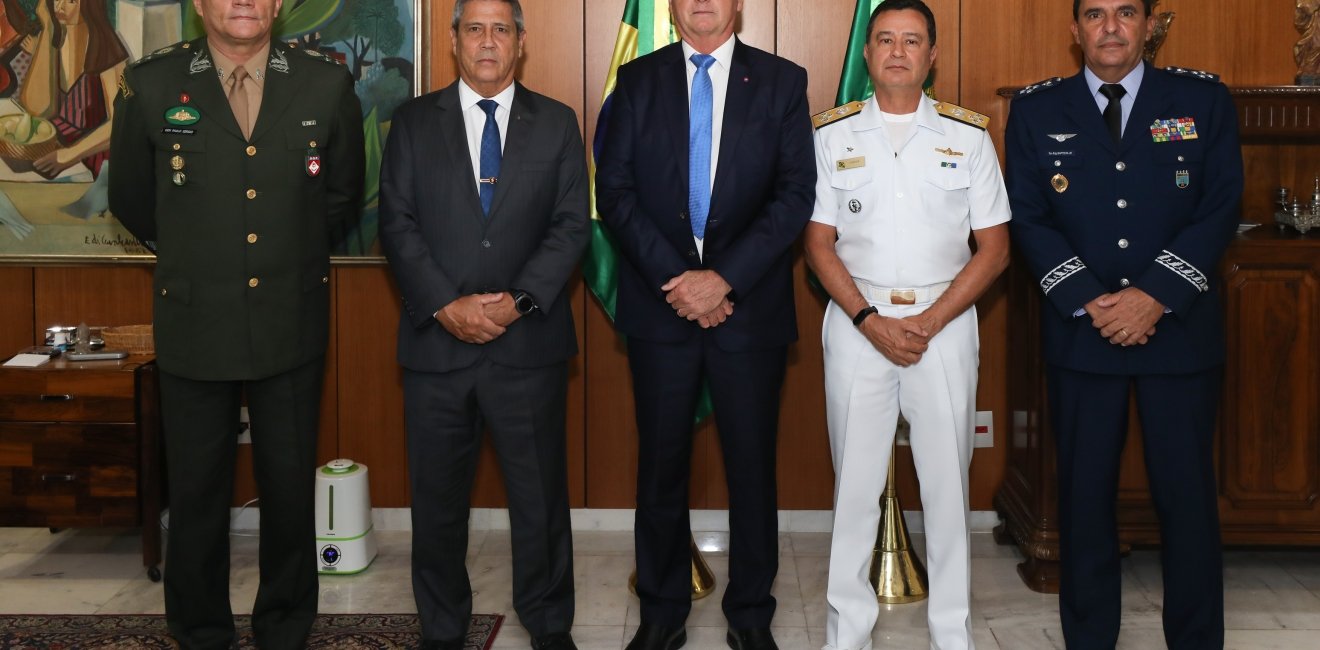
A blog of the Latin America Program
Amid Public Uproar, Bolsonaro Cleans House
By Anya Prusa
Brazil saw an abrupt cabinet reshuffle Monday, followed by the resignation of the commanders of its army, navy and air force, as President Jair Bolsonaro faced mounting political pressure to address the worsening COVID-19 crisis. Home to just 3 percent of the world’s population, Brazil is responsible for more than 25 percent of daily COVID-19 deaths worldwide. As hospitals across the country run out of beds and oxygen, Bolsonaro’s popularity has plummeted and pressure from congress, governors and business leaders has grown. There are 69 impeachment petitions on the desk of House Speaker Arthur Lira.
Yet rather than ramping up the vaccine effort or encouraging Brazilians to wear masks, Bolsonaro is circling the wagons, using a cabinet shakeup to surround himself with loyalists and strengthen his control over the armed forces. He announced the departure or transfer of six cabinet-level officials on Monday: the foreign minister, defense minister, attorney general, justice minister, secretary of government and chief of staff, known in Brazil as the casa civil. On Tuesday, in an unprecedented move, the commanders of the armed forces resigned in protest.
Monday’s house cleaning came just a week after Bolsonaro appointed his fourth health minister, cardiologist Marcelo Queiroga, since the start of the pandemic.
Foreign Minister
Former Foreign Minister Ernesto Araujo resigned as expected on Monday after congressional leaders ramped up public calls for his dismissal. Though a key ally of the president, Araujo became a liability after antagonizing Brazil’s top trading partners, China and the United States. He was also widely blamed for impeding Brazil’s access to COVID-19 vaccines. “Araujo does more harm than good to the country, particularly during a crisis that’s spiraling out of control,” Senator Humberto Costa, a member of the Senate Foreign Relations Committee, said. The new foreign minister, Carlos Alberto França, is a little-known career diplomat who seems likely to follow the president’s lead.
Defense Minister
Unlike Araujo’s departure, former Defense Minister Fernando Azevedo e Silva’s resignation came a surprise. Azevedo, an army reserve general, had held his post since Bolsonaro took office in 2019. He was widely seen as a shield against the politicization of the military, and he acknowledged that role in his resignation letter, saying he had sought to “preserve the armed forces as institutions of the state.” Azevedo’s replacement, Army General Walter Souza Braga Netto, is a close Bolsonaro ally and his former chief of staff. On Tuesday, he said he would “realign” the armed forces with the government and issued a statement celebrating the role of the Brazilian dictatorship one day before the anniversary of the 1964 military coup.
Casa Civil
General Luiz Eduardo Ramos replaced Braga Netto as chief of staff, leaving his position as secretary of government.
Secretary of Government
Flávia Arruda, a first-term congresswoman and member of the Centrão coalition, succeeded Ramos as secretary of government, responsible for the administration’s legislative priorities. In selecting Arruda, Bolsonaro acknowledged the importance of keeping Lira, the powerful house speaker, as a government ally.
Attorney General
André Luiz de Almeida Mendonça, previously the justice minister, replaced Attorney General José Levi, who had declined to endorse Bolsonaro’s lawsuit against three state governors over COVID-19 lockdowns. (The Supreme Court dismissed the case last week, criticizing Bolsonaro’s “totalitarian” attempt to infringe on state rights.)
Justice Minister
The new justice minister, Anderson Gustavo Torres, is a federal police officer and Bolsonaro family friend who had been in charge of public security for the Brazilian capital.
Military Commanders (Army, Navy and Air Force)
Bolsonaro’s announcement Wednesday of the new military commanders seemed designed to calm the unfolding military crisis. Admiral Almir Garnier Santos, who was close to the former defense minister, will lead the navy. Brigadier General Carlos Almeida Baptista Jr., a firmer supporter of the president, will head the air force. Lastly, General Paulo Sérgio Nogueira de Oliveira, who has been the target of criticism from Planalto, will head the army.
The chaos in Brasilia, however, is far from over. Tensions within the military remain high. Congressional leaders continue to push for the ouster of the environment and education ministers, and will undoubtedly demand more senior-level government positions and other concessions from the politically wounded president. In an unusual show of unity, six likely 2022 presidential contenders—from the political right, center and left—released a joint statement on the anniversary of the 1964 coup calling for the defense of Brazilian democracy. As COVID-19 rages across Brazil, there is little indication the new cabinet will prove more successful than the last at addressing the crisis.
Author

Senior Director, Albright Stonebridge Group

Latin America Program
The Wilson Center’s prestigious Latin America Program provides non-partisan expertise to a broad community of decision makers in the United States and Latin America on critical policy issues facing the Hemisphere. The Program provides insightful and actionable research for policymakers, private sector leaders, journalists, and public intellectuals in the United States and Latin America. To bridge the gap between scholarship and policy action, it fosters new inquiry, sponsors high-level public and private meetings among multiple stakeholders, and explores policy options to improve outcomes for citizens throughout the Americas. Drawing on the Wilson Center’s strength as the nation’s key non-partisan policy forum, the Program serves as a trusted source of analysis and a vital point of contact between the worlds of scholarship and action. Read more


Brazil Institute
The Brazil Institute—the only country-specific policy institution focused on Brazil in Washington—aims to deepen understanding of Brazil’s complex landscape and strengthen relations between Brazilian and US institutions across all sectors. Read more


Argentina Project
The Argentina Project is the premier institution for policy-relevant research on politics and economics in Argentina. Read more

Explore More in Weekly Asado
Browse Weekly Asado
Dengue Haunts South America’s Summers

Lessons from Costa Rica’s Economic Transformation

Women and Latin America’s Digital Revolution

